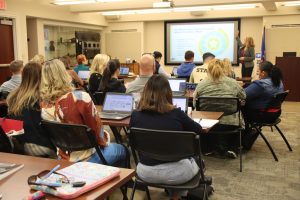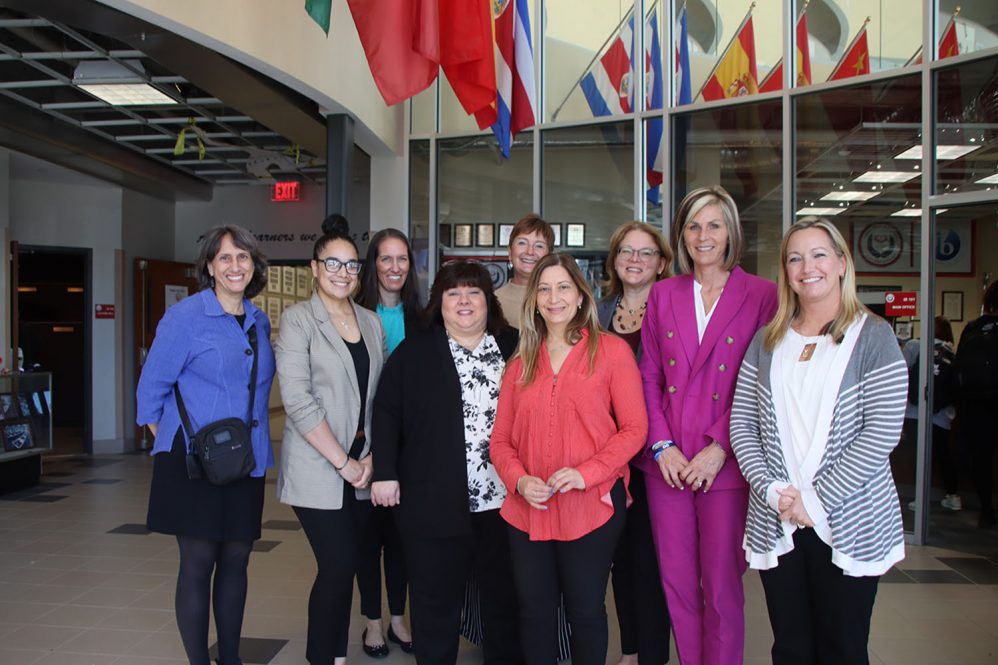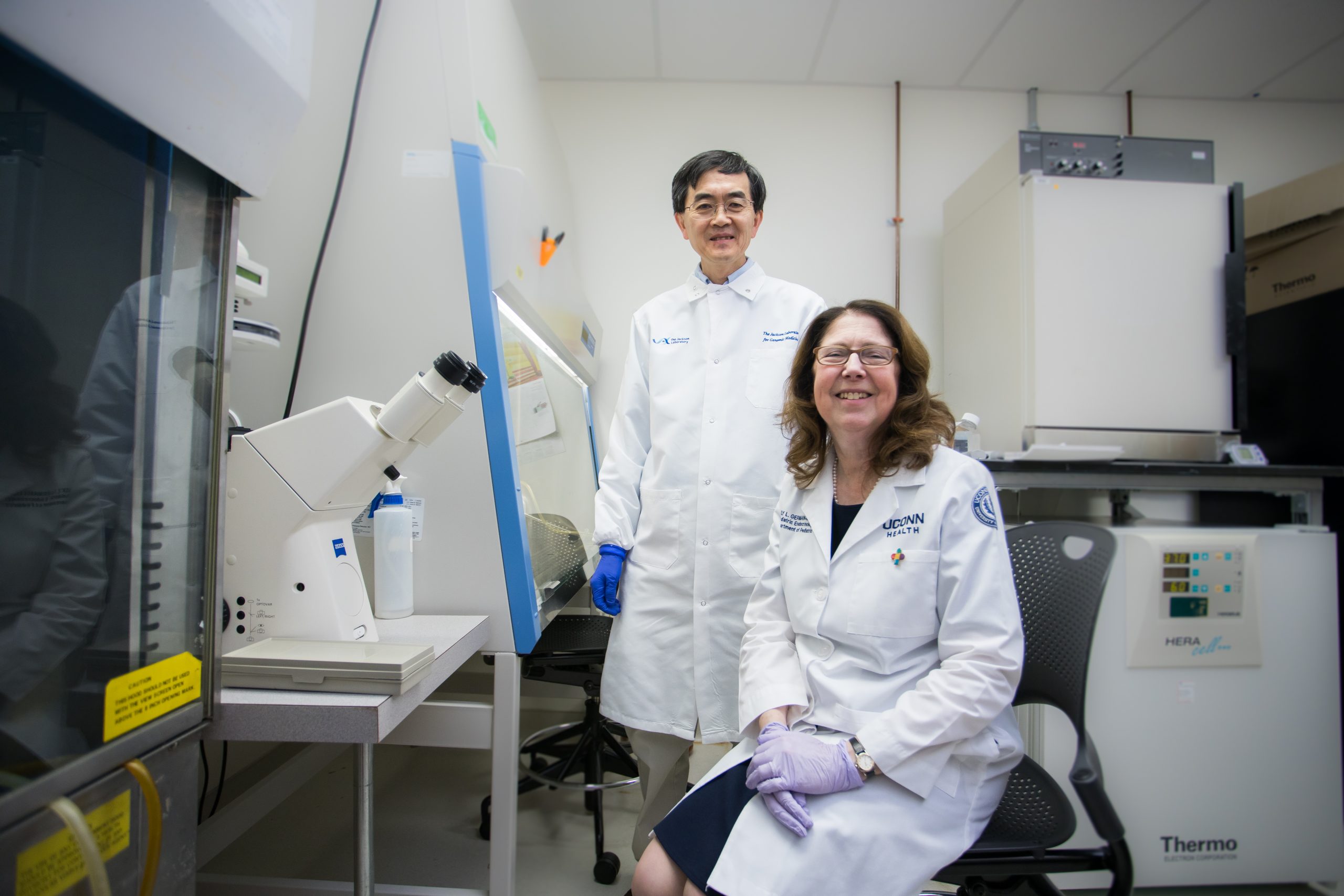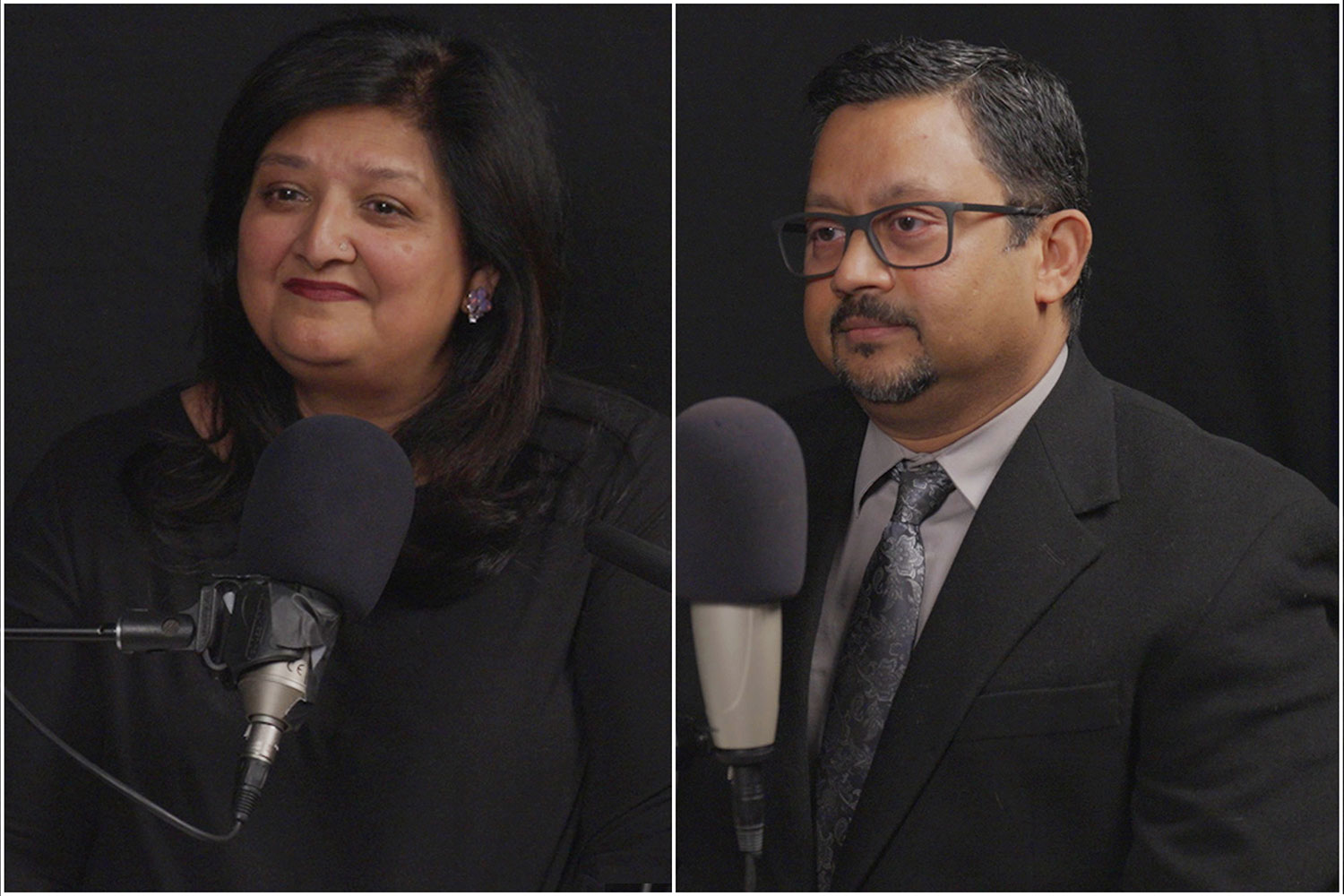The Connecticut Whole School, Whole Community, Whole Child (WSCC) Partnership celebrated a productive first year with an eventful site visit from Centers for Disease Control and Prevention representatives. Stephanie Domain and Melissa Fahrenbruch from the CDC’s Division of Adolescent and School Health (DASH), flew to Connecticut in late April to learn what UConn and East Hartford Public Schools have been up to.
Last year, the UConn Collaboratory on School and Child Health and the UConn Rudd Center for Food Policy and Health were awarded a five-year, $2 million cooperative agreement from the CDC to protect and improve the health and well-being of school-age children and adolescents in Connecticut. The UConn team, led by Co-PIs Sandra Chafouleas and Marlene Schwartz and Co-Investigators Jessica Koslouski and Kathleen Williamson ’13 MA ’17 Ph.D., hit the ground running and formed the CT WSCC Partnership, which supports the implementation of evidence-based policies, practices, programs, and services aligned with the Whole School, Whole Community, Whole Child (WSCC) model.

So far, the Partnership has provided more than a dozen hours of professional development in East Hartford Public Schools, the school district partner on the project. These hours focused on building foundational knowledge about the WSCC model across the district and guiding the District and School WSCC Teams through assessment and action planning activities to begin to strengthen WSCC-aligned practices.
“East Hartford is the perfect partner, as they had already laid much of the groundwork for this project,” says Chafouleas, Board of Trustees Distinguished Professor and Ray Neag Professor of School Psychology in the Neag School of Education and Co-Director of the UConn Collaboratory on School and Child Health. “East Hartford Public Schools has been focusing on health and wellness for 20 years and Tracy Stefano [K-12 Supervisor of Health & Physical Education] has been a huge proponent of the WSCC model.”
As part of the site visit, Domain and Fahrenbruch observed one of the East Hartford Public Schools professional development sessions led by the UConn team. Stefano was involved in the coordination of the sessions.
“Using the WSCC tools developed by UConn, we’ve been able to work together to examine our current practices and our future needs that align to the WSCC model,” says Stefano. “It’s fantastic to see our leaders now connecting the work they’re already doing and their strategic plans to this model in a way that is sustainable and benefits our schools, community and children.”
Domain and Fahrenbruch also stopped by two schools during their time in East Hartford. They took part in a schoolwide Wellness Day at the Connecticut IB Academy and visited Mayberry Elementary School, where they learned about the different resources available to support students, from the school garden to the school-based health center.
“We were proud to host the CDC for the WSCC site visit and have the chance to share the collective efforts we have made to ensure we meet the needs of all children, every day,” says Joe LeRoy, principal of Mayberry. “The connection between current practices and plans for next steps allowed the team to see the prospective impact of the partnership.”
In addition to focused collaboration with East Hartford Public Schools, the CT WSCC Partnership also leads statewide efforts to increase implementation of WSCC-aligned policies and practices.
As part of the CDC’s site visit, the Partnership hosted a meeting of key statewide leaders who have historically collaborated with CSCH and the Rudd Center and will continue to serve as partners as the Partnership expands its statewide work. Leaders from the Connecticut departments of Public Health and Education were in attendance, as well as representatives from UConn’s Vice Provost’s Office; Institute for Collaboration on Health, Intervention, and Policy; and Neag School of Education.
Using the WSCC tools developed by UConn, we’ve been able to work together to examine our current practices and our future needs that align to the WSCC model. — Tracy Stefano, East Hartford Public Schools
“We’re looking forward to using the WSCC Model with our longstanding partners to document all of the ways in which Connecticut supports student and school health and discover new ways to coordinate efforts,” says Marlene Schwartz, professor in Human Development and Family Sciences and Director of the Rudd Center.
Another significant statewide success of the CT WSCC Partnership’s first year was the launch of the WSCC Academy, a free day of training for school and district wellness teams to learn about the WSCC model and tools to strengthen whole child practices in their setting. The first WSCC Academy was held in early fall 2023, and the Partnership team just hosted its second WSCC Academy on Friday, May 17.
“We used feedback from last year’s attendees to expand, so that this year we had introductory and intermediate/advanced professional learning tracks to meet teams where they are in their WSCC journeys,” says Kate Williamson, Co-Investigator and Project Coordinator of the Partnership. “We were excited to have over 40 attendees from 16 districts and organizations this year.”
School districts interested in learning more about the CT WSCC Partnership and potential professional development can find out more on the Partnership website.
“It was a truly incredible experience having the opportunity to see the work of the cooperative agreement being implemented at the state level and with the [district]” says Domain of the CDC. “Seeing such dedicated and committed staff and buy-in from leadership was truly spectacular.”



